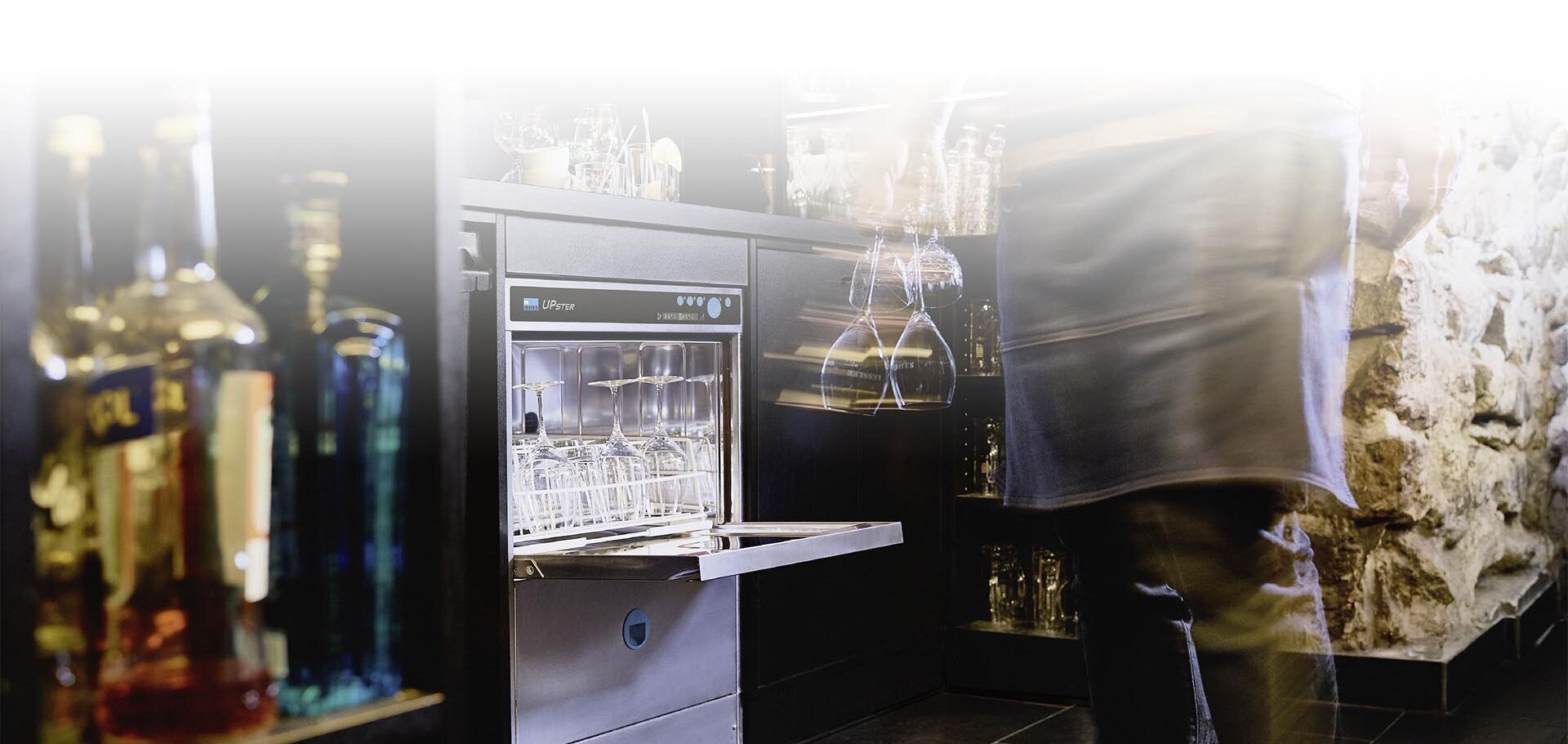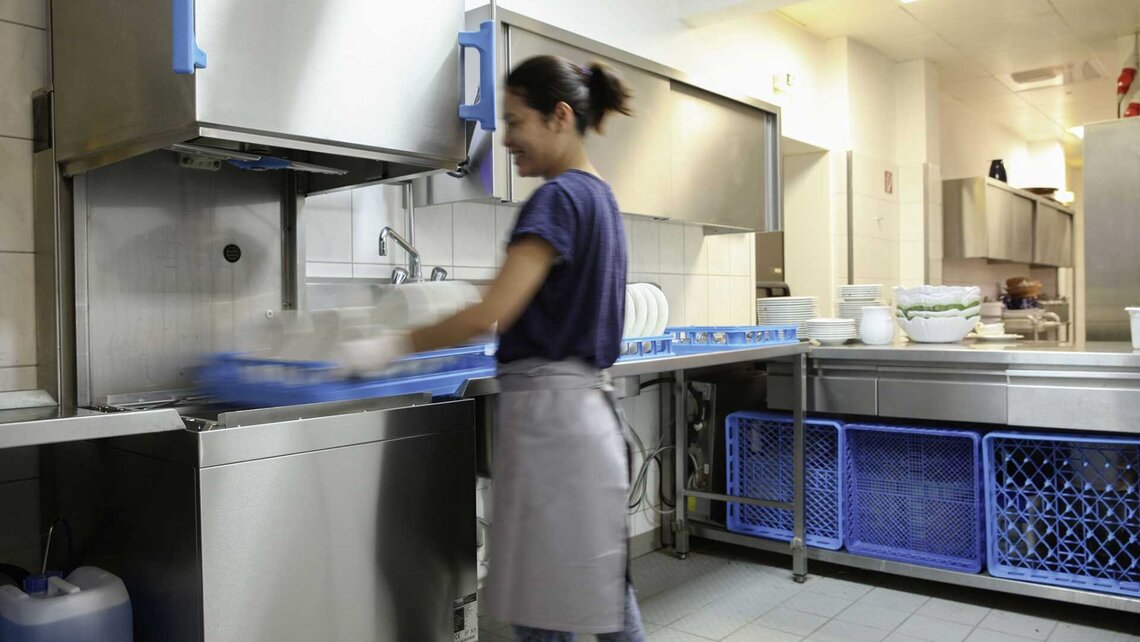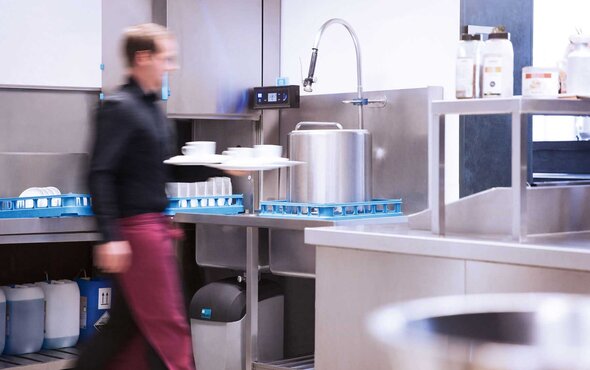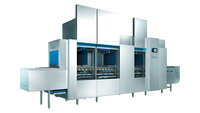
It feels like tech always lets you down at the worst possible moment. You can imagine what that looks like in a professionally set-up dishwashing area in the hotel and food-service trade. If the dishwashing machine suddenly fails or the results are no longer clean enough, processes quickly grind to a halt. But glasses, plates, etc. still need to be washed to keep the entire operation going, by hand if necessary. However, hand washing is far less economical, hygienic and ergonomic than using a commercial dishwashing machine. It is also less environmentally friendly and much slower.
But don't worry: at its base, professional warewashing technology is designed for permanently high loads and it represents maximum reliability and security for your plans. Operators and users also have a vital role to play, though. You need to operate your food-service dishwashing machine properly and clean, maintain and service it regularly (and correctly!) Under those conditions, products from leading manufacturers can provide reliable service for up to ten years. This article therefore provides some tips on how to get your commercial dishwasher to achieve the longest possible service life.
SERVICE QUALITY
IS IMPORTANT
When choosing a supplier, you should therefore make your decision not only by the quality of the products but also the quality of the service.
The warewashing technology specialists at MEIKO in Offenburg, were once again recognised for quality and reliability by industry bodies in 2018. MEIKO sets a good example, dealing with maintenance issues, routine inspections and ad hoc repairs, including a 24 hour service for emergencies which is available seven days a week. In addition, we have an extensive stock-keeping system integrated into our network of subsidiaries to guarantee that we can have standard spare parts available within 48 hours.
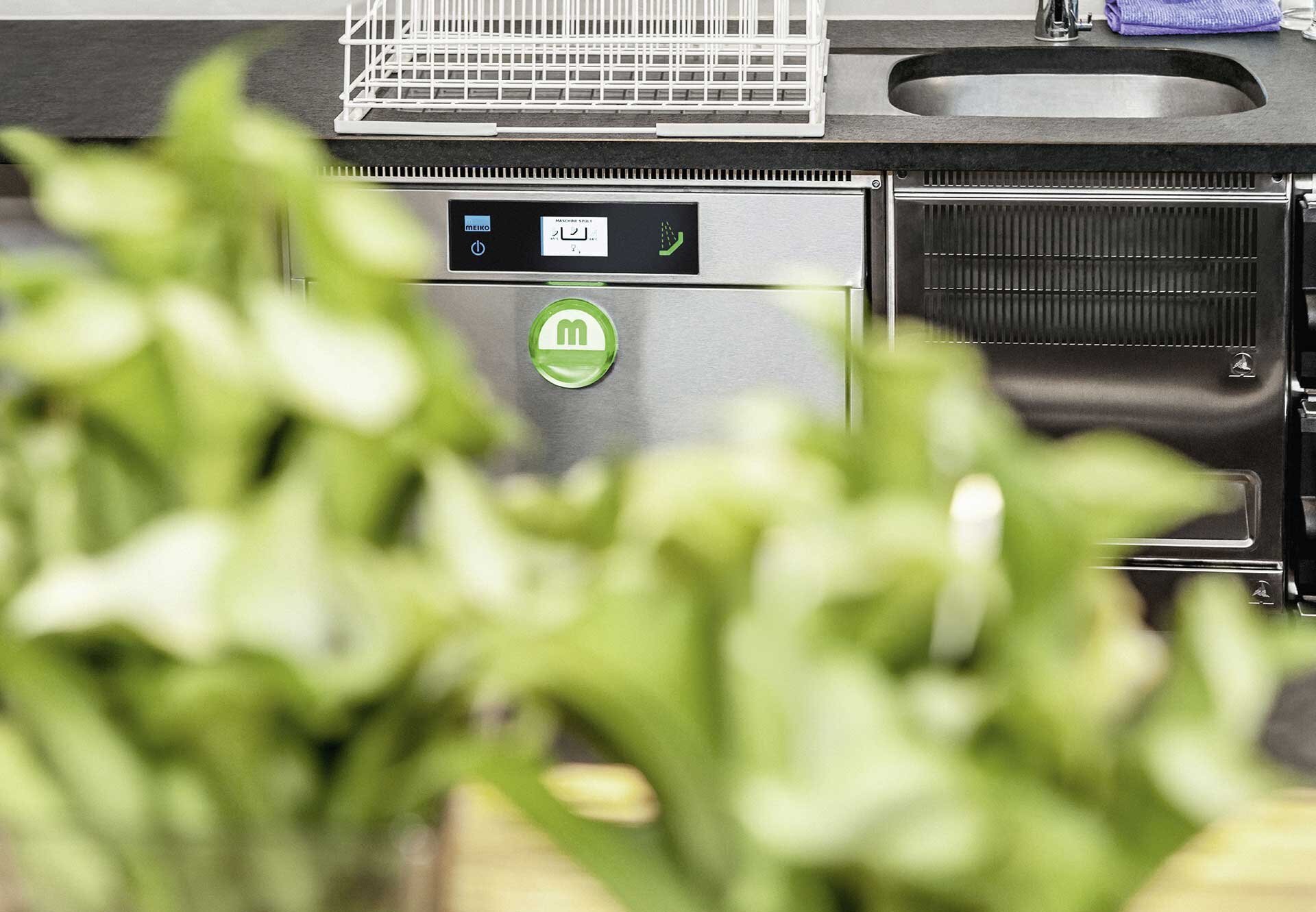
MAINTENANCE AND CLEANING OF COMMERCIAL DISHWASHING MACHINES
Your own staff, too, can and should also ensure that they always get the best out of your commercial dishwashing machine. Conscientiously handling technical equipment is central to adding value in your business insofar as it significantly contributes to keeping that equipment working for a long period of time. This helps to keep everything running smoothly in your dishwashing area to everyone's benefit: operators, employees and diners.
For this reason, the staff who will later be working with your new food-service dishwashing machine should take a close look at the operating instructions before commissioning – a job which is often underestimated. Only when a commercial dishwashing machine is properly operated, cared for and cleaned according to the manufacturer's instructions will it be guaranteed to work long term.
The warewashing technology specialists at MEIKO in Offenburg, Germany, believe it is important to make operation, cleaning and care as easy as possible for multinational teams and help avoid mistakes by making their machines intuitive to operate. MEIKO also regularly offers training courses on these points.
4 TIPS
for the day-to-day use of a food-service dishwashing machine
Here are a few tips on the minimum measures you should take to make sure that your commercial dishwasher works perfectly for as long as possible – getting you an even better ROI:
1. Load it properly
When loading plates, glasses and cutlery, care must be taken to ensure that they cannot damage the arms or other moving parts in the dishwashing machine. The dishwashing machine must also not be overloaded, as this is detrimental to its performance. You should also pay attention to choosing the right rack: if it is intended for plates and glasses, the holes will be larger and smaller items such as knives can slip through unnoticed.
2. Pick the right programme
You should always select the wash programme based on how dirty the crockery is. It makes no sense to always run the dishwashing machine on its highest setting and it would be incredibly uneconomical to do so, not to mention that the lifespan of the dishwashing machine would suffer as a result. Depending what equipment is available in the dishwashing area, coarser waste can be hand sprayed off before the wash cycle.
3. Clean it carefully
You may have a self-cleaning programme (or run your machine empty on the highest setting) but the various sieves, filters, washarms, seals, corners, etc. in your dishwashing machine still need to be washed or rinsed in their own right. Compared to domestic dishwashing machines, commercial machines operate much more frequently, meaning cleaning may even be required several times a day. In particular your machine should always be cleaned after the last wash cycle of the day.
A thorough final clean is indispensable
4. Remove the limescale regularly
Dishwasher salts filter the lime out of the water and bond to it, ensuring you can achieve good dishwashing results at all times and extending the life of the machine. This is why the salt must always be topped up. If your water is particularly hard, your commercial dishwashing machine should also be professionally descaled on a regular basis – preferably using specialist descaling agents obtained from specialist retailers. Alternatively, MEIKO offers an ideal solution straight out of the factory: an (optional) built-in water softener called ‘Active Clean’.
If you operate, maintain and regularly service your dishwasher properly, it will serve you well for many years to come. These two articles will explain why you should use professional dishwashers and what you should pay attention to when setting up your gastro kitchen:
